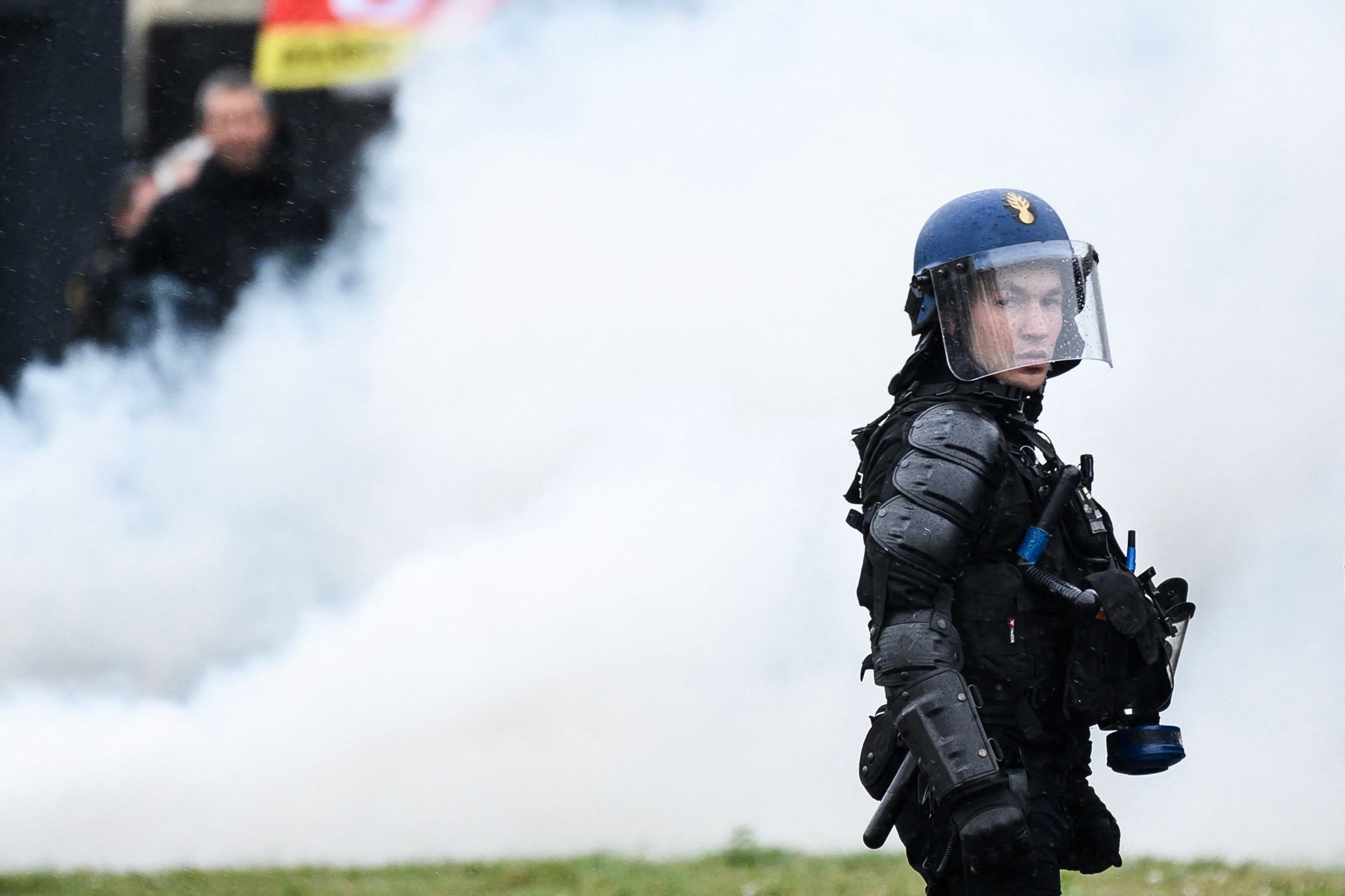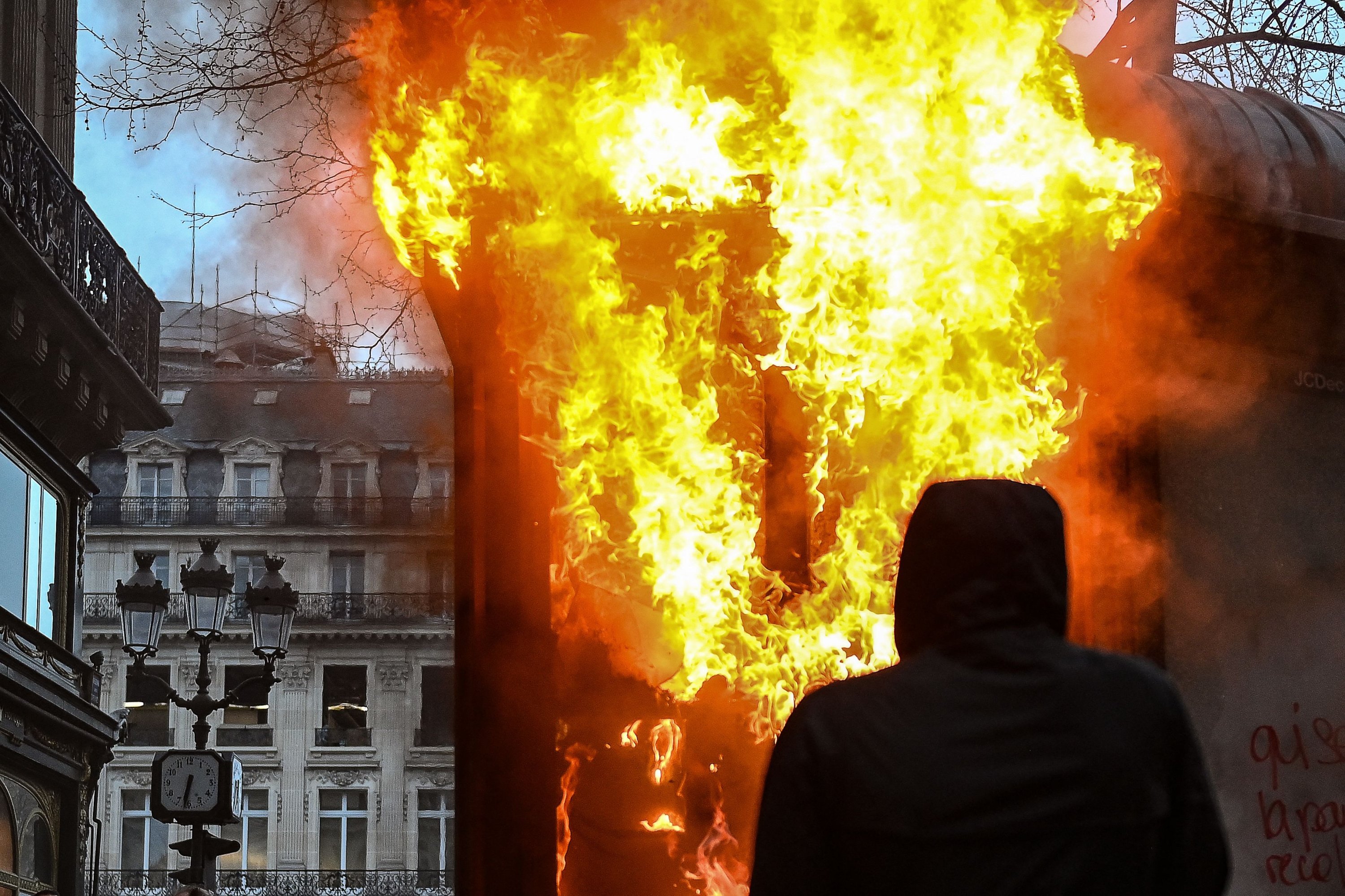© Turkuvaz Haberleşme ve Yayıncılık 2024
Hundreds of people were arrested while hundreds of others were injured during fresh protests in France as the opposition to the higher pension age reached new levels.
There were violent scenes in Bordeaux, Nantes and Rennes and police in the capital Paris used tear gas against the crowds Thursday.
A fire was lit in a front of the city hall in Bordeaux, in southern France. The entrance of a colonnade leading to the forecourt of the building was damaged, a spokeswoman for the prefecture told the Deutsche Presse-Agentur (dpa). A man was arrested.
Prime Minister Elisabeth Borne called the violence and damage to buildings unacceptable.
Interior Minister Gerald Darmanin told broadcaster CNews on Friday morning that some 457 had been arrested, while about 440 members of the security forces had been injured.
In Paris, protesters were said to have started about 900 fires on the sidelines of the protests.
The Interior Ministry said late Thursday that 1.09 million people turned out across France. The CGT union said 3.5 million people took part.
Around 12,000 police officers were deployed.
Earlier, government opponents blocked railway stations, roads and part of the Charles-de-Gaulle international airport in Paris.
French trade unions have called for new nationwide strikes and protests Tuesday.
Strike and protest days had been mostly peaceful for weeks, but recent days saw increasing violence during spontaneous demonstrations.
"We want non-violent actions that respect property and people," said Laurent Berger of the CFDT multi-sector union in a bid to calm the situation.
The protests are directed against the gradual increase of the retirement age from 62 to 64, and more generally against the actions of the center-right government of President Emmanuel Macron.
There have been repeated protests against the government's plans, which aim to close a looming gap in the pension fund with the reform.

In a separate development a planned visit to France from Sunday by King Charles III has been postponed due to ongoing protests over pension reform, the French presidency announced Friday.
"This decision was taken by the French and British governments after a telephone conversation between the president and the king this morning," said a statement.
"This state visit will be reorganized as soon as possible."
Iran, in the meanwhile, has urged France to listen to protesters and avoid violence.
"The French government must talk to its people and listen to their voices," Iran's foreign ministry spokesperson, Nasser Kanani tweeted Friday.
"We do not support destruction or rioting, but we maintain that instead of creating chaos in other countries, listen to the voice of your people and avoid violence against them," he added.
A week ago, the stand-off intensified as the government pushed the reform bill through the National Assembly without a vote.
On Monday evening, two motions of no confidence in the government failed, which resulted in the reform being passed.

It is now being examined by the Constitutional Council, but no date has been set for it to make any ruling. Macron wants the reform to come into force by the end of the year.
The reform was "very difficult," the president said television interview a day earlier. "We are asking people to make an effort. It's never popular."
But, "Between the polls and the short-termism and the general interest of the country, I choose the general interest of the country," he added in defense of the reform.
Due to the strike, trains and flights were canceled again on Thursday, and high schools and universities were partially blocked.
The ongoing blockade of oil depots resulted in at least one fuel being missing at 15% of the country's petrol stations, according to the BFMTV broadcaster.
